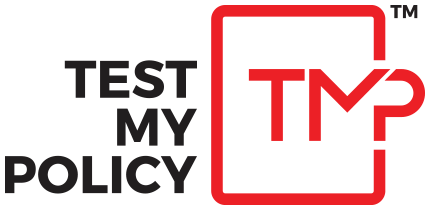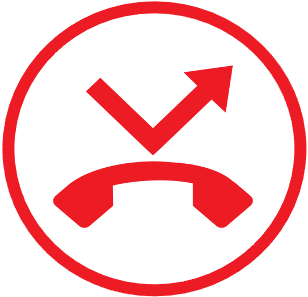
21002+
Policies Tested

Upload your current health policy document
to get accurate recommendations and comparison quotes.
FAQS
HEALTH INSURANCE FAQS
Everything you wanted to ask about health insurance
TEST MY POLICY FAQS
Got questions about Test My Policy? You’ve come to the right place
1. How does Health Insurance Work?
Health insurance is a type of non-life insurance that covers your medical expenses arising
out of hospitalisation following sickness or accident. A health insurance policy is a contract
between an insurance company (called the insurer) and the persons insured or their
families. This contract, usually detailed in the Health Insurance Policy, lays out the terms and
conditions under which the insurer agrees to provide health insurance cover at a specific
“premium” – or the cost of the contract you need to pay.
Health insurance as defined by Wikipedia is “insurance that covers the whole or a part of
the risk of a person incurring medical expenses, spreading the risk over a large number of
persons.” In other words, it’s an insurance policy that covers an individual or a family against
medical expenses where the policyholder chooses a coverage under an insurance plan and
he/she will be reimbursed the expenses incurred for treatment of an injury or illness.
2. What are different kinds of Health Insurance in India?
Health insurance policies in India cover the expenses incurred on treatment that requires
hospitalization. However, many specialised health policies are now available which offer a
range of medical insurance covers, depending on the specific need of the customer. Indian
insurance companies provide health insurance in one of these three forms:
• Direct payment to the hospital (also known as cashless feature)
• Reimburses expenses associated with hospital bills and receipts
• Fixed benefit on the occurrence of an illness (e.g., critical illness policies)
The type and amount of health care costs that are covered by the health plan are specified
in advance.
3. What factors determine Health Insurance premiums?
The age of the insured is a major factor that determines the premium. The older you are,
the higher your premium will cost, since the older you get, the more likely you are to fall ill
and claim insurance.
If you have a pre-existing medical condition (like hypertension, diabetes, etc), it impacts
your premium and you may have to pay a higher amount to get suitable coverage.
The number of years a health policy remains claim-free is also a factor in determining the
cost of the premium. You get lower premium rates or a discount for a higher number of
claim-free years.
Health insurance companies classify cities into zones and premiums can also vary,
depending on which city you live in. Those staying in a Metro or Tier I city usually have to
pay higher premiums.
4. Can an individual have multiple Health policies?
Yes, one person can have multiple health insurance policies, but you can claim only from any one of the policies at a time. A typical example of this is group medical policies provided by employers to their staff. Many employees choose to have their individual or family floater policies in addition to the employer’s group policy. Customers can also opt for additional Top-Up insurance plans to bolster their base policies.
5. Why is Health Insurance Important?
Given the current cost of healthcare, and the sharp rise in these costs every year, everyone
needs to have health insurance for themselves and their family members without exception.
Irrespective of your economic or social standing, you can choose from a health plan that
suits your needs and pockets. Health insurance can protect your family from financial
troubles from unexpected expenses of hospitalization or treatment of a critical illness.
Everyone is exposed daily to various health hazards and lifestyle illnesses and medical
emergencies can strike anyone without any prior warning. Importantly, the cost of
healthcare is also increasingly expensive, with emphasis on technology, new procedures,
and more effective medicines that have increased the costs of quality healthcare. Health
insurance makes expensive healthcare possible, for a fraction of the cost of hospitalisation.
6. What is a Family Floater policy?
Family Floater is a type of health policy that covers the medical expenses of an entire family
under a single sum insured. The premise being (except in the Covid scenario) that every
member of the family doesn’t need to utilise the available insurance in each policy year.
So a family floater is a policy for the entire family, which can be utilised by any/all insured,
subject to the maximum of policy sum insured. Often family floater plans are better (and
cheaper) than buying separate individual plans. Family Floater plan is an ideal option for
families where the eldest member of the family is under 45 years old since premiums in
family floater policies are calculated basis the age of the oldest person covered.
7. What is Cashless Facility under Health Insurance?
Most insurance companies have a designated network of hospitals across the country in
partnership with their Third Party Administrator (TPA). For policyholders who undergo
treatment in these network hospitals, the insurer’s TPA makes arrangements for the
payment directly to the hospital and there is no need for the insured person to pay hospital
bills. This is known as a cashless treatment facility.
In a cashless settlement, a policyholder needs to pay for expenses not covered by sub-limits
under specific clauses mentioned in the policy. These are paid directly to the hospital at the
time of discharge. For health policies, a cashless facility is only available at Network
Hospitals. In case the policyholder opts for treatment in a non-network hospital, they need
to settle the bills and then submit them for reimbursement from the insurance company.
8. What features should I consider while buying Health Insurance?
Here are some key features and benefits you should consider before buying a health
insurance plan. To know more about these features, you can read up insurance blogs and
refer to help articles available online. You can also test your current health policy benefits on
www.testmypolicy.com
•Exclusions under the policy for specific diseases
•Room Rent & Treatment Sub-Limits
•Pre-existing Disease Waiting Periods
•Restoration Benefit especially for family floater policies
•Cashless Hospital Network of the Insurer
•Additional benefits like Health Check-Ups offered by the insurer
•Claims Settlement Ratio and Reputation of the Insurance company
9. What are the different types of Health Insurance plans available?
Health insurance plans come in many shapes and sizes to suit the needs of a variety of
customers. From micro-insurance policies in rural areas, mediclaim policies that only cover
hospitalisation expenses, specialised health policies with fixed claims (like critical illness
plans), group plans, and health schemes offered by the Government and Corporates.
Comprehensive Plans
Most private insurance companies (operating as non-life or general insurance) offer both
basic and comprehensive health policies with sum insured ranging from ₹1 lac to ₹1 crore
(or more). Comprehensive policies typically offer higher flexibility, better coverage and
include several additional benefits like health checks, restoration of the sum insured,
no-claim bonuses, etc.
A health policy is meant to cover the actual cost of the treatment for hospital admissions
during the policy period. Such policies are available for individual, multiple individual or
family floater basis, where the sum insured is shared across the family members. While
most health insurance policies are valid for a duration of one year, policies can also be
bought for a longer duration of up to 3 years.
Top Up or Super Top Up
Another type of health policy one can opt for is a Top Up or Super Top Up plan. These are
useful to increase the sum insured coverage of basic health plans without the need to buy
another policy. The Top Up policy only comes into force once you have exhausted the sum
assured of your basic health plan, hence these policies cost much lower than basic plans
with a higher sum insured.
Critical Illness Policy
There are also specialised critical illness policies available to cover high costs of cardiac care,
cancer treatment, or Covid risks. These policies usually provide a lumpsum amount to the
policyholder when on the diagnosis of a specified illness or on undergoing a specified
procedure. They help mitigate various direct and indirect financial consequences of a critical
illness. Policies for specific customer groups like senior citizens are also offered by most
insurance companies.
10. Are there tax benefits if one opts for Health Insurance?
Yes, the premium you pay for health insurance offers attractive tax benefits as an added incentive. Under Section 80D of the Income Tax Act, you are eligible to claim a deduction from your taxable income up to ₹15,000 for the payment of Health Insurance premium for self, spouse, and dependent children. One can also claim a deduction of an additional ₹15,000 if they are paying the health insurance premium on behalf of their parents, assuming parents are senior citizens.
11. What are common exclusions in health insurance policies?
It’s important to understand what your health insurance policy covers. But it’s even more
important to be aware of the exclusions or what is not covered under the health plan.
Generally, pre-existing diseases (different across insurers and plans) are excluded or impose
a waiting period before they can be claimed. Specific treatments for certain diseases are
also excluded from the first year of coverage or have a waiting period. These exclusions are
usually listed in your policy document. To know what kind of waiting periods your policy
enforces, you can test your policy at www.testmypolicy.com
There are also certain standard exclusions in most health policies such as:
•Treatment of medical conditions arising due to hazardous activities
•External Congenital Anomaly
•Convalescence & Rehabilitation
•Cosmetic or Plastic Surgery
•Dental/Oral Surgery
•Eyesight & Optical Services
•Experimental Treatment
•Hormone Replacement Therapy
•Obesity and Weight Control Programs
•Reproductive Medicine & other Maternity Expenses
•Robotic-Assisted Surgery
•Sexually transmitted Infections & diseases
•Sleep Disorders
•Substance- related and Addictive Disorders
•Treatment at Non Recognized Physician or Hospital
•Cost of consumables like swabs, disposables, PPE kits, etc.
For the exact list of what your policy covers or not, you must read the policy document
carefully.
12. What is co-payment?
Some policies offer a lower premium when you opt for the co-payment feature. Co-payment is a payment sharing clause in your policy in which the policyholder agrees to co-pay a part or percentage of the claim amount. Co-pay can vary between 15% to 30% depending on your health insurance plan. E.g., if you have a policy in which the co-payment is fixed at 20% and your claimable hospital bill is Rs. 1 lakh, you will need to pay Rs. 20,000 or 20% of the claimable amount and the rest will be paid by your insurance company.
13. Is there a waiting period for claims under health insurance?
A waiting period is the duration of time a policyholder must wait before some or all of their coverage comes into effect. You will not receive benefits for claims filed during the waiting period. There are generally different waiting periods in most health insurance policies, like 30 days waiting period at the inception of a policy, when hospitalization charges are not payable by the insurance companies, except in case of an accident. Similarly, there are waiting periods for maternity, pre-existing diseases, etc.
14. What is Pre-existing Disease mentioned in a health insurance policy?
When you buy a health policy for the first time, the insurance companies ask you to declare
if you have been diagnosed with or treated for any chronic diseases. These are known as
pre-existing diseases. Most insurance companies in India exclude coverage for pre-existing
diseases for a defined period, which is specified at the beginning of the policy. Treatment
cost for pre-existing diseases is usually covered after a few years of insurance coverage.
While it varies from company to company, pre-existing condition coverage can be covered
after 2 to 4 years, provided you renew the policy with the same insurer. Waiting periods for
pre-existing medical conditions can be from 24 to 48 months, after which pre-existing
diseases and any treatments arising out of such conditions are covered. Some new
comprehensive health plans cover pre-existing diseases from the first year of policy
purchase too. One must be aware of the waiting periods and the sum insured for treatment
due to pre-existing conditions as it impacts your health coverage. One quick way to do that
is to test your policy on www.testmypolicy.com
15. Should I disclose my pre-existing diseases when buying a policy?
At the time of applying for a health policy, you must disclose any illnesses for which you are currently undergoing treatment or have had treatment in the past. Insurance companies refer to such health issues as pre-existing illnesses. So yes, it is necessary to disclose your existing health problems before buying a policy. Since the insurers are not liable to any of the alteration of facts later on.
16. Will I have medical coverage if I don’t renew my policy date before the expiry date?
No. Your medical cover is compromised if you fail to renew your policy. Ideally, your renewal premium should be paid before the expiry date of the current year’s policy. However, insurance companies offer an additional 15 days as Grace Period after the expiry date of the policy to allow payment of the renewal premium. Failure to make the premium payment even during this grace period results in the policy lapsing. Also, your health coverage would not be available for the period for which no premium is received by the insurance company.
17. What does Insurance portability mean?
The Insurance Regulatory and Development Authority of India (IRDAI) is a regulatory body
that issues guidelines to insurance companies in India. One such guideline issued by IRDAI
refers to Insurance Portability. In simple terms, insurance portability is similar to mobile
number portability, which allows you to change your telecom operator without changing
your mobile number. IRDAI mandates that a policyholder should have the right to port
his/her health policy to another insurer without losing the benefits you have accumulated.
Before insurance portability, such a move would have resulted in a policyholder losing
benefits like the waiting period for covering Pre-existing Diseases. With insurance
portability, you can port your policy to any other insurer of your choice and the new insurer
“shall allow for credit gained by the insured for pre-existing condition(s) in terms of waiting
period”. This applies not only when you move from one insurer to another but also from one
plan to another with the same insurer.
18. What are the terms and conditions for Insurance portability?
The following policyholder rights and conditions have been mandated by IRDAI with regards
to insurance portability.
Rights of the Policyholder
•You can port your policy from and to any general insurance company or specialised
health insurance company
•You can port any individual or family floater policy
•Your new insurer has to give you the credit relating to the waiting period for
pre-existing conditions that you have gained with the old insurer
•Your new insurer has to insure you at least up to the sum insured under the old
policy
•Porting by the new insurer must be completed as per the timelines prescribed in the
IRDA’s regulations and guidelines
Conditions applicable for policy porting
•You can port the policy only at the time of renewal, at least 45 days before renewal is
due
•Except for the waiting period credit, the new policy terms (including premium) are at the
discretion of the new insurance company
•To port your health policy, approach your current insurer at least 45 days before your
renewal is due
•Give a written intimation to inform your old insurance company of the shift
•Specify company to which you want to shift the policy
•Renew your policy without a break (30 day grace period if porting is under process)
19. What are Pre and Post Hospitalisation expenses?
One of the key benefits of a health insurance policy is that it can also cover medical
expenses incurred before and after hospitalisation. These include the cost of consultation,
medicines, treatments, or therapies recommended by the doctor in charge of your hospital
treatment.
Most policies cover pre-hospitalisation treatment cost up to 30 days and post hospitalisation
costs for 60 or 90 days. Medical expenses incurred pre and post hospitalisation are
considered as part of the claim provided they relate to the illness for which treatment was
sought and a claim filed by the policyholder.
20. What are Network Hospitals?
Insurance companies have agreements with prominent hospitals through their Third Party
Administrators (TPA) for providing Cashless treatment to the policyholders. These hospitals
raise the policyholder’s medical bills directly to the TPA and the insured doesn’t need to pay
the hospitals for the treatment. Such hospitals are referred to as Network Hospitals.
The advantage of going to your insurance company’s network hospital is that they offer fixed
and pre-decided charges for treatments/surgeries etc. and are generally better committed
to quality healthcare.
21. What are Day Care procedures and will my policy cover them?
With the advances in medical science, many treatments which required hospitalisation can
now be treated in a day. A day care procedure refers to any minor surgery or medical
procedure that can be completed in less than 24 hours and doesn’t need the patient to be
hospitalised.
Since health policies usually require a min. 24 hours hospitalisation to file a claim, an
exhaustive list of day care procedures has been added under medical policy coverage. Today,
all insurance companies cover day care procedures, but the exact number and kinds of
treatments covered vary with insurers. To see which Day Care procedures are covered by
your insurer, please read your policy terms and conditions. For further information, you can
always compare the benefits and features of your policy at www.testmypolicy.com
22. Who do I need to call in an emergency hospitalisation?
All medical insurance insurers have appointed a Third Party Administrator (TPA) to manage claims and be the first point of call for a policyholder. Some insurance companies outsource TPA duties and a few have in-house TPAs for faster settlement of claims. Your policy documents and health cards will usually have the contact details of your insurer’s TPA. If you can’t reach the TPA for some reason, you can always call the insurance company directly on their Toll-Free Assistance numbers to inform them about your hospitalisation.
Blogs and Articles

28-Jan-2022
- Team TMP
Super-Boost your health cover with Super Top-Up
The past few years have been a period of uncertainty and a bearer of bad news. Just when we thought this catastrophe was finally beginning to terminate, we are thrown off with yet another hardball. One more variant of the Coronavirus is pr
Read More
08-Sep-2021
- Team TMP
The Importance of Health Insurance
What is Health Insurance?
Health insurance is an agreement whereby insurance company agrees to undertake a guarantee of compensation for medical expenses in case the insured falls ill or meets with an accident whi
Read More
09-Aug-2021
- Team TMP
What You Need to Know Before Porting Your Health Policy
Shantanu, a 45 year old professional, suffers from hyper-tension and when he bought health insurance, he cited the health problem as a pre-existing medical condition. When the insurer raised premiums after two years, Shantanu decided to sw
Read More
08-Jul-2021
- Team TMP
Looking for Family Floater Health Insurance? Read this first.
A family floater health insurance protects you from high medical costs that may arise from the hospitalisation of your family members. Family floater plans cover hospital bills for planned medical procedures and emergency medical care for
Read More
08-Jun-2021
- Team TMP
How to Save on the Premium Of Your Health Insurance?
Today every insurance company claims that they have the best health policy plans to offer. As customers, we also want a policy with better coverage and fewer exclusions and limitations. But we need to remember that the higher and more comp
Read More
08-May-2021
- Team TMP
A Simple Guide to Comprehensive Health Insurance
A health emergency can be a serious drain on one’s finances and resources. With the cost of quality health care and hospitalisation rising many fold in recent years, having a comprehensive health insurance policy is no longer an opti
Read More



